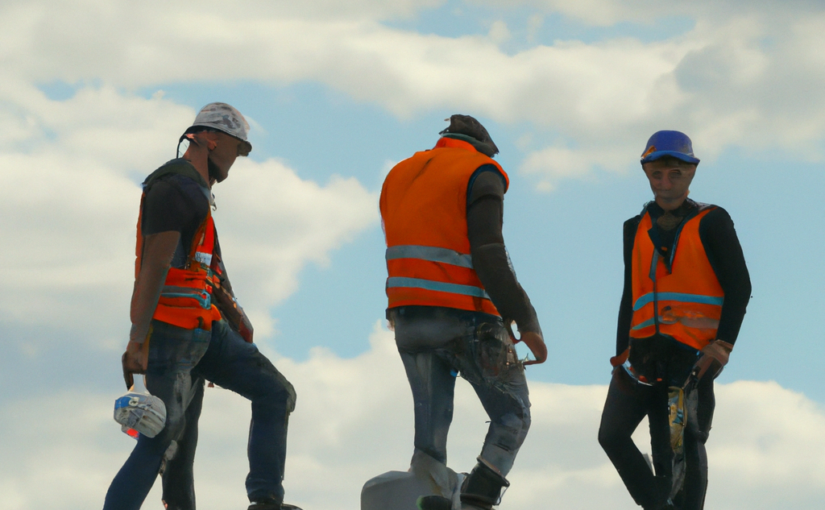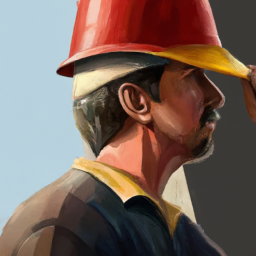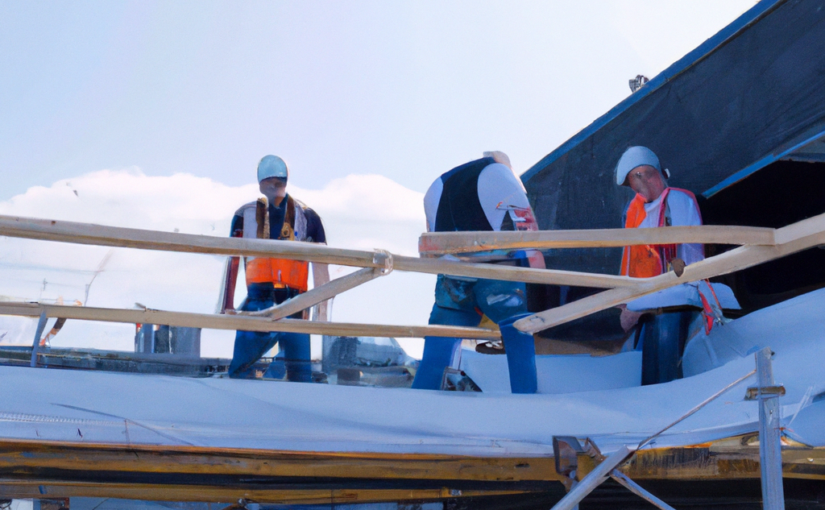Reading Time: 6 minutesConstruction workers’ compensation is an essential benefit for employees in the construction industry. If you have questions about your rights, you should consult a Workers’ Comp Lawyer.
Many construction workers are not aware of their rights or the process of filing for benefits. This article aims to provide a comprehensive guide to construction workers compensation, including who is covered, what benefits are available, and how to file a claim. By understanding your rights as an employee, you can ensure that you receive the compensation you deserve in the event of a workplace injury.
Introduction: Understanding Construction Workers’ Compensation
What is Construction Workers’ Compensation?
Construction workers’ compensation is a type of insurance that provides financial assistance to employees who are injured or become ill as a result of their work in the construction industry.
This includes injuries that occur on the job site, as well as those that result from exposure to hazardous materials or repetitive motions. Workers’ compensation benefits exist to help injured workers cover their medical expenses and lost wages, as well as to provide rehabilitation services and death benefits for surviving family members in the event of a fatal accident.
Who is Covered by Construction Workers’ Compensation?
All employees in the construction industry, regardless of their job title or position, are entitled to workers’ compensation benefits. This includes full-time, part-time, and seasonal employees, as well as independent contractors and subcontractors in some cases.
However, there may be some exceptions for construction workers who are classified as volunteers, interns, or trainees. It is important to note that construction workers’ compensation coverage is not optional for employers in most states, meaning that employers are legally required to provide this benefit to their employees.
What Benefits are Available through Construction Workers’ Compensation?
Workers’ compensation benefits can vary depending on the specific circumstances of the injury or illness. However, in general, construction workers’ compensation benefits can include coverage for:
- Medical expenses, including doctor visits, hospital stays, medications, and medical equipment
- Lost wages, which are typically a percentage of the construction worker’s average weekly wage
- Rehabilitation services, including physical therapy and vocational rehabilitation
- Death benefits for surviving family members in the event of a fatal accident
It is important to note that construction workers’ compensation benefits are typically tax-free and do not require the injured worker to prove that their employer was at fault for the injury. This is known as a “no-fault” system, which means that construction workers’ compensation medical benefits are available regardless of who was responsible for the injury or illness.
The Process of Filing for Construction Workers’ Compensation
If you have been injured on the job, it is important to understand the process of filing for workers’ compensation benefits. By following the correct procedures, you can ensure that your claim is processed quickly and efficiently.
Reporting Your Construction Injury
The first step in filing for workers’ compensation is to report your injury to your employer. This should be done as soon as possible, preferably within 24 hours of the injury occurring. If you do not report your injury in a timely manner, your claim may be denied. When reporting your injury, you should provide as much detail as possible, including the date and location of the injury, the circumstances surrounding the injury, and the symptoms you are experiencing. It is recommended that you report your injury in writing, either by email or by filling out a written incident report.
Seeking Medical Treatment for Construction Injury
After reporting your construction injury, you should seek medical treatment right away. Your employer may have a list of approved healthcare providers that you can use, or you can choose your own doctor. It is important to inform the healthcare provider that your injury occurred on the job, as this will ensure that they bill your employer’s workers’ compensation insurance carrier directly. You should also provide the healthcare provider with a copy of your employer’s workers’ compensation policy information, which should include the name and contact information of the insurance carrier.
Filing Your Construction Injury Claim
Once you have received medical treatment, you should file a claim for workers’ compensation benefits. This can be done either through your employer or through your state’s workers’ compensation agency. If you file through your employer, they will typically provide you with the necessary forms and instructions. If you file through your state’s workers’ compensation agency, you will need to follow the specific procedures and deadlines for your state. In general, you will be required to provide documentation of your injury, including medical records and any witness statements, as well as a description of the benefits you are seeking.
Challenges and Issues in Construction Workers’ Compensation
While construction workers’ compensation is designed to protect injured workers, there are still some challenges and issues that can arise in the process. It is important to be aware of these challenges so that you can navigate the workers’ compensation process effectively.
Denial of Construction Injury Claims
Unfortunately, some workers’ compensation construction injury claims are denied by employers or insurance companies. This can occur for a variety of reasons, including incomplete documentation, disputes over the cause of the injury, or employer retaliation. If your claim is denied, you have the right to appeal the decision. However, the appeals process can be complex and time-consuming, and it is often helpful to consult with an experienced workers’ compensation attorney.
Disputes Over Benefits for Injured Construction Worker
In some cases, there may be disputes over the amount of benefits that should be provided to an injured worker. This can occur if the employer or insurance company disputes the severity of the injury or the extent of the disability. It is important to carefully document your injury and work with your healthcare provider to ensure that your condition is accurately diagnosed and documented. If you are facing disputes over benefits, an attorney can help you negotiate with your employer or insurance company to ensure that you receive the full benefits you are entitled to.
Retaliation from Employers
Unfortunately, some employers may retaliate against employees who file constuction workers’ compensation claims. This can take the form of termination, demotion, or other forms of discrimination.
It is important to be aware of your rights as an employee and to document any instances of retaliation that occur. If you believe that you are being retaliated against for filing a workers’ compensation claim, you should contact an attorney immediately.
If you have been injured on the job, it is important to follow the correct procedures for reporting your construction injury and filing a claim.
If you encounter any challenges or issues in the workers’ compensation process, it is important to consult with an experienced attorney who can help you navigate the system effectively.
Frequently Asked Questions
What is Construction Workers’ Compensation?
Construction workers’ compensation is a type of insurance that provides financial assistance to employees who are injured or become ill as a result of their work in the construction industry.
Who is Covered by Construction Workers’ Compensation?
All employees in the construction industry, regardless of their job title or position, are entitled to workers’ compensation benefits. This includes full-time, part-time, and seasonal employees, as well as independent contractors and subcontractors in some cases.
What Benefits are Available through Construction Workers’ Compensation?
Construction Workers’ compensation benefits can vary depending on the specific circumstances of the injury or illness. Medical expenses, Lost wages, Rehabilitation services and Death benefits are always covered by Workers’ Comp Laws of your State.
Resources for Construction Industry Workers Compensation
- Wikimedia Commons Occupational Safety and Health Administration (OSHA): OSHA is a federal agency that sets and enforces safety and health standards in the workplace. OSHA has a number of resources available for construction workers, including information on specific hazards, safety training, and how to file a complaint.
- Wikimedia Commons National Institute for Occupational Safety and Health (NIOSH): NIOSH is a federal agency that conducts research on occupational safety and health. NIOSH has a number of resources available for construction workers, including information on specific hazards, prevention strategies, and how to get help if you have been injured.
- Workers’ Compensation Boards : Each state has a workers’ compensation board that is responsible for administering workers’ compensation benefits. Workers’ compensation boards can provide information on how to file a claim, what benefits are available, and how to appeal a decision.
- Construction trade unions : Many construction trade unions have resources available to help members who have been injured on the job. These resources may include legal assistance, financial assistance, and job placement assistance.
Related Keywords
- Construction workers’ compensation laws
- How to file a construction workers’ compensation claim
- What benefits are available to construction workers under workers’ compensation
- Construction workers’ compensation coverage
- Construction workers’ compensation insurance
- Construction workers’ compensation benefits
- Construction workers’ compensation injuries
- Construction workers’ compensation claims
- Construction workers’ compensation lawyers
- Construction workers’ compensation resources
If You Have been Injured at A Construction Site
Construction workers’ compensation is an essential benefit for employees in the construction industry. By understanding your rights as an employee, you can ensure that you receive the compensation you deserve in the event of a workplace injury.
Why do I need a Workers’ Comp Lawyer?

If you have been injured at work, it is important to speak with an experienced Workers’ Comp Lawyer as soon as possible. They can help you understand your rights and get the benefits you deserve.
A Workers’ Comp Lawyer’s representation, depending on the situation may include the following:
- File a claim petition: A Workers’ Comp Lawyer can file a claim petition on your behalf to get you all the benefits you are entitled to. This includes wage replacement, medical expenses, and other benefits.
- Block employer’s insurance company’s attempt to terminate or suspend your wage / comp benefits: If your employer’s insurance company tries to terminate or suspend your benefits, a Workers’ Comp Lawyer can help you fight back.
- Ensure your work related injury medical bills are paid: A Workers’ Comp Lawyer can make sure that your work-related medical bills are paid by your employer’s insurance company.
- Prepare and present your case in court, if necessary: If your case goes to court, a Workers’ Comp Lawyer can prepare and present your case for you.
- Support your medical claims through your doctor, if necessary: A Workers’ Comp Lawyer can work with your doctor to support your medical claims and make sure that you are getting the treatment you need for your workplace injury.
- Cross-examine insurance medical expert during trial, if necessary: If your case goes to trial, a Workers’ Comp Lawyer can cross-examine the insurance company’s medical expert.
- Settle your Workers Compensation claim for a lump sum amount, in consultation with you: A Workers’ Comp Lawyer can negotiate a settlement for your Workers’ Compensation claim, and they can help you understand all of your options.
Injured at Work? Get Legal Help & Protect Your Rights, Benefits & Compensation — Call 844–682‑0999.






